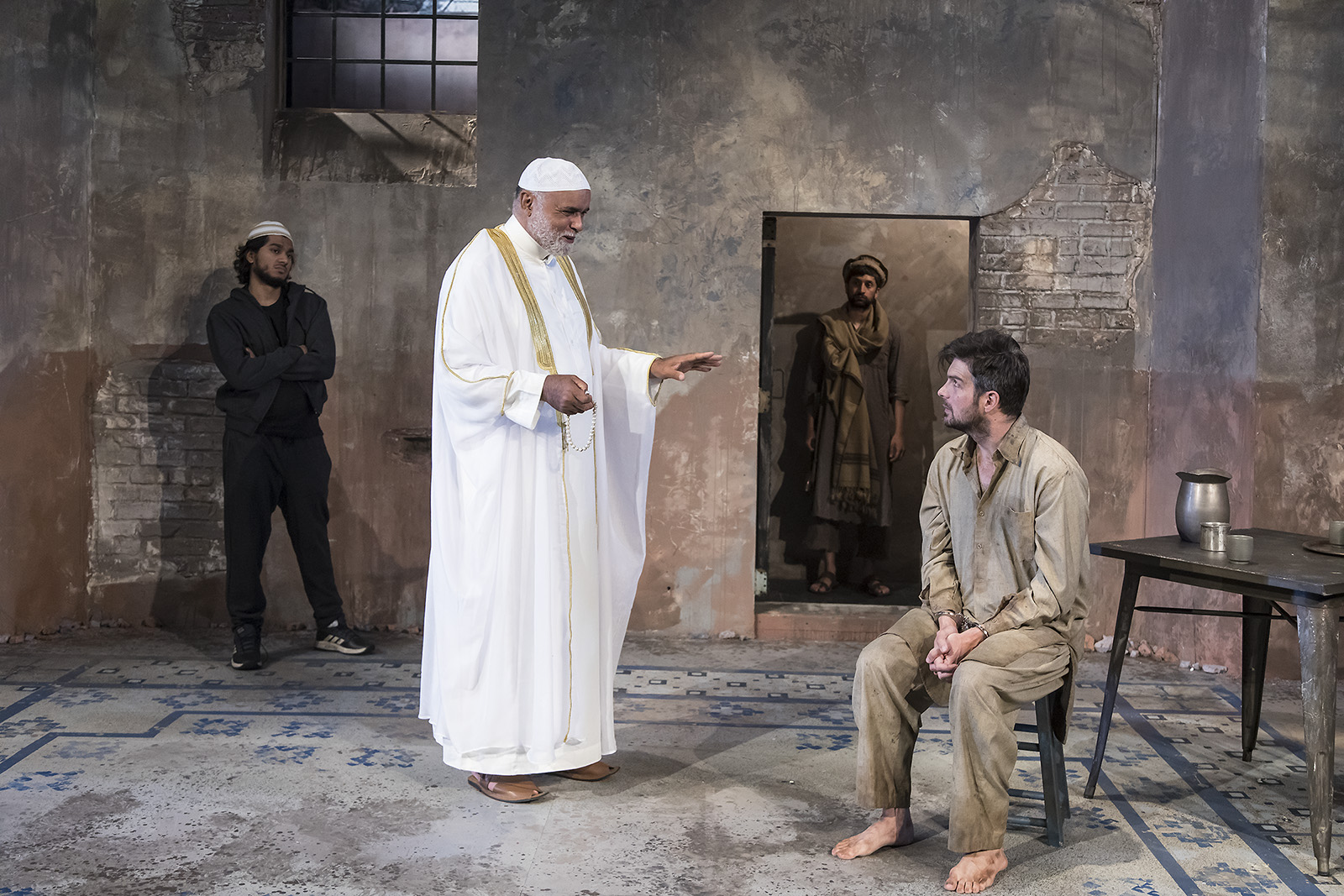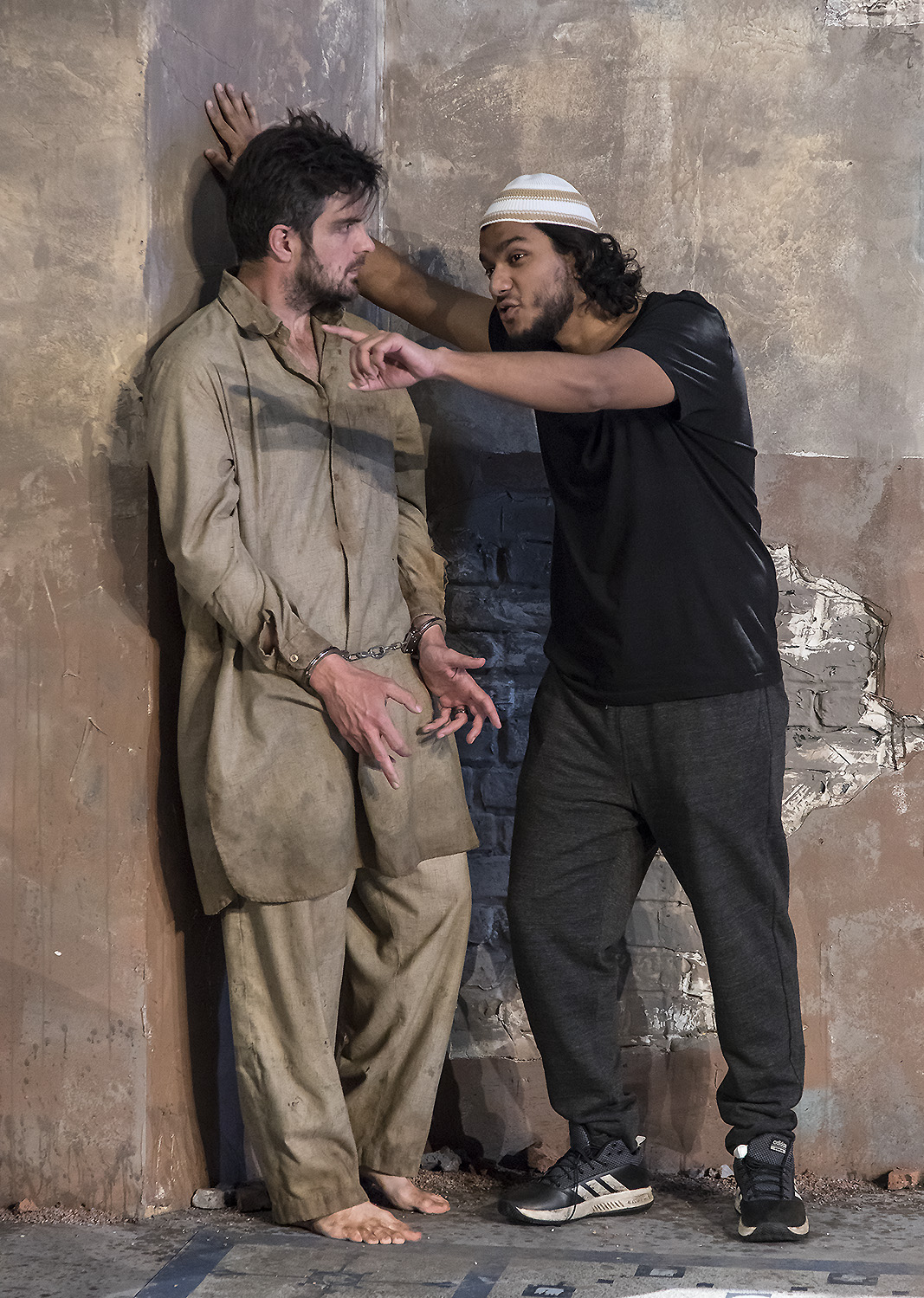
With The Invisible Hand, playwright Ayad Akhtar revives the political thriller, a genre that has been mostly absent from the stage, even in an era when it thrives in the movies and on television. The play solves the thriller’s perennial problem of the implausibly inhumane antagonist with a trio of “villains” who each turn out not only to have individual personalities but also to change and make surprising decisions for unexpected reasons.

John Tufts anchors the action with a spot-on, no-nonsense performance in the role of Nick Bright, the kidnapping victim. Sarang Sharma brings a smoldering intensity to Dar, the lowest ranking of the three captors. As Imam Saleem, the leader, Mujahid Abdul-Rashid conveys real menace through his physicality yet retains a specificity in his portrayal of the character’s complex personality.
It’s Jameal Ali as Bashir, however, who lights the fire that brings things to a crisis. Bashir’s postcolonial Cockney accent, disconcerting at first, proves to be the script’s most flexible instrument, capable of a kaleidoscopic range of emotional effects. What’s more, it’s from Bashir’s perspective as the disillusioned, radicalized son of immigrants who left Pakistan for the London suburbs that the play offers its most trenchant critiques of Westernization and capitalism.
The visceral tension of a thriller seldom comes bearing such rich veins of knowledge and speculation. It’s entirely possible that decades from now — or sooner — professors will use The Invisible Hand to teach the basics of hedge-fund-era financial strategy. Through his portrayal of the collaboration between Bashir and Nick, Akhtar provides not only this primer on puts, calls, and shorts, but also serious and poignant ways of thinking about their real-world consequences, which can be tragic. Take the time to see The Invisible Hand. It might change the way you see the world.



